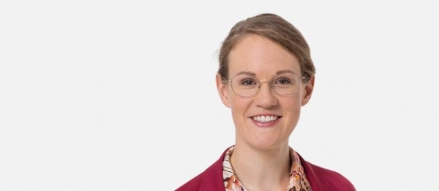
Federal Central Office for Taxes may not refuse input VAT deduction from final invoices
Deduction from final invoices
The case
An Austrian company had included two final invoices in an input VAT refund application within the time limit, for which advance payment invoices issued and paid in the same refund period had been deducted. The refund applied for by the claimant comprised the total amount of input VAT from the final invoices, including the input VAT amounts from the advance payment invoices. However, the itemised list of invoices only included the final invoices.
The Federal Central Office for Taxes in Germany (BZSt) only refunded the input tax from the remaining amounts of the final invoice, i.e. did not take the advance payment invoices into account, even though the claimant had subsequently submitted copies of the advance payment invoices and corresponding payment receipts in the appeal proceedings. With regard to the advance payment invoices, there was no effective application in the view of the BZSt. The refund application was only deemed to have been submitted within the meaning of § 61 para. 1 sentence 2 no. 1 of the administrative guidelines to the German VAT Code (UStDV) if the applicant had provided all the information required by Art. 8 and 9 para. 1 of Directive 2008/9/EC (VAT refund Directive). Therefore, the advance payment invoices should have been listed in the itemised list of invoices. The fact that the applicant had subsequently submitted the advance payment invoices did not help either.
After the tax court ruled in favour of the plaintiff, the BZSt appealed.
Decision
The Federal Fiscal Court (BFH) had already previously ruled that, in the case of a final invoice, the input VAT deduction only results from the VAT shown there, which remains after deduction of the advance payment invoices. Therefore, with regard to the input VAT amount from the advance payment invoices, the refund application is only deemed to have been submitted within the meaning of § 61 para. 1 sentence 2 no. 1 UStDV if the application also contains the required information on these invoices, as this information must be provided for each invoice.
However, if both the advance payment invoices and their payment, as well as the final invoice issued after the supply has been performed, relate to the same VAT refund period, it is sufficient to only provide the information on the final invoice. After all, the information is only a formal requirement for input VAT deduction. A breach of this could only lead to a denial of the input VAT deduction if this prevented reliable proof that the material requirements had been met. This was not the case here, as the final invoices and the advance payment invoices related to the same remuneration period, and the final invoices also contained the name and full address of the supplier and the type of supplies purchased in relation to the advance payment invoices. This information is sufficient to establish that the taxable person is liable for VAT. Similar to invoices with incorrect invoice numbers, input VAT deduction may not be denied in such a case for reasons of neutrality and proportionality.
In addition, the principle of good administration requires the BZSt to request that the applicant submit a corrected application if the input VAT amount from the attached invoices exceeds the refund amount shown in the application. The corrected application is then deemed to have been submitted at the time the original application was submitted (ECJ ruling CHEP Equipment Pooling of 21 October 2021, C-396/20). Mirroring this, in the present case, where the refund amount applied for exceeds the input VAT amount from the final invoice, this means that the application is also deemed to have been submitted on time with regard to the input VAT from the advance payment invoices.
The fact that the advance payment invoices were not attached to the application for reimbursement is irrelevant. The second sentence of the first subparagraph of Article 15 (1) of the VAT refund Directive provides that the application for refund is only deemed to have been submitted if the applicant has provided all the information required under Articles 8, 9 and 11. It follows that the failure to enclose a copy of the invoice does not mean that the application is deemed not to have been submitted (see also the ECJ ruling Commission v Germany of 18 November 2020, C-371/19). If, therefore, an application may not be rejected in the complete absence of an invoice to be attached, this must apply a fortiori in the case in dispute, in which final invoices were submitted, from which the VAT shown in the advance payment invoices was derived.
Impacts
The input VAT refund procedure has always been characterised by formal hurdles. Irrespective of the legal arguments, it would seem absurd not to grant the input VAT deduction from the advance payments if these are clearly evident from the final invoice submitted. In such case constellations, companies should appeal with reference to the current BFH judgement if the BZSt rejects the refund. However, it should be noted that the judgement only relates to cases in which the advance payment invoice and corresponding payment fall within the same refund period as the final invoice. In order to avoid conflicts, it is advisable to continue to include the advance payment invoices separately in the refund application. Furthermore, the BFH judgement has no effect on refund applications in the area of foreign VAT which are submitted to the BZSt but then forwarded to the foreign authority.





